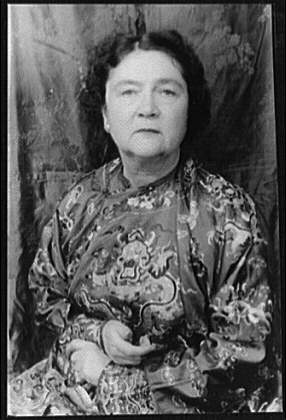 |
| Shailja Patel [James Murua's Literature Blog] |
from Shailja Patel's Migritude:
Dreaming in Gujarati
The children in my dreams
speak in Gujarati
turn their trusting faces to the sun
say to me
speak in Gujarati
turn their trusting faces to the sun
say to me
care for us nurture us
in my dreams I shudder and I run.
I am six
in a playground of white children
in a playground of white children
Darkie, sing us an Indian song!
Eight
in a roomful of elders
all mock my broken Gujarati
English girl!
Twelve
I tunnel into books
forge an armor of English words.
forge an armor of English words.
Eighteen, shaved head,
combat boots. Shamed
by grannies in white saris,
neon judgments
singe my western head.
neon judgments
singe my western head.
Mother tongue
Matrubhasha
Tongue of the mother
I murder in myself
Through the years I watch
Gujarati
swell the swaggering egos of men,
mirror them over and over
at twice their natural size.
swell the swaggering egos of men,
mirror them over and over
at twice their natural size.
Dissolve the bones and teeth of women,
break them on anvils of duty and
service,
burn them to skeletal ash.
Words that don't exist in Gujarati:
Self-expression
Individual
Lesbian
English rises in my throat,
rapier flashed at yuppie boys who claim
rapier flashed at yuppie boys who claim
their people “civilized” mine,
thunderbolt hurled
at cab drivers who yell
Dirty black bastard!
force-field against
teenage hoods hissing
Fucking Paki bitch!
Fucking Paki bitch!
Their tongue — or mine?
Have I become the enemy?
Listen:
my father speaks Urdu,
language of dancing peacocks,
rosewater fountains —
even its curses are beautiful.
He speaks Hindi,
suave and melodic,
earthy Punjabi,
salty-rich as saag paneer,
coastal Swahili laced with Arabic.
He speaks Gujarati,
solid ancestral pride.
my father speaks Urdu,
language of dancing peacocks,
rosewater fountains —
even its curses are beautiful.
He speaks Hindi,
suave and melodic,
earthy Punjabi,
salty-rich as saag paneer,
coastal Swahili laced with Arabic.
He speaks Gujarati,
solid ancestral pride.
Five languages,
five different worlds.
Yet English
shrinks
him
down
before white men
who think their flat, cold spiky words
make the only reality.
Words that don't exist in English:
Najjar
Garba
Arati
If we cannot name it, does it
exist?
What becomes of a tongue of
What becomes of a tongue of
milk-heavy cows, earthen
pots, jingling anklets,
temple bells,
when its children grow up
when its children grow up
in Silicon Valley? To be
programmers?
programmers?
Then there's American:
Kin'uh get some service?
Dontcha have ice?
Not:
May I have please?
Ben, mane madhath karso?
Tafadhali nipe rafiki
Donnez-moi, s'il vous plait
Puedo tener . . .
Hello, I said can I get some service?!
Like, where's the line for Ay-mericans
in this goddamn airport?
Didja see how we kicked some major ass in the Gulf?
Lit up Bagdad like the fourth a' July!
Whupped those sand-niggers in’nu a parking lot!
The children in my dreams speak
in Gujarati. Bright as butter,
succulent
cherries, sounds I can paint on the air
with my breath, dance
through like a Sufi mystic.
Words I can weep and howl
Words I can weep and howl
and devour, words I can kiss
and taste and dream —
this tongue
I take
this tongue
I take
back.












